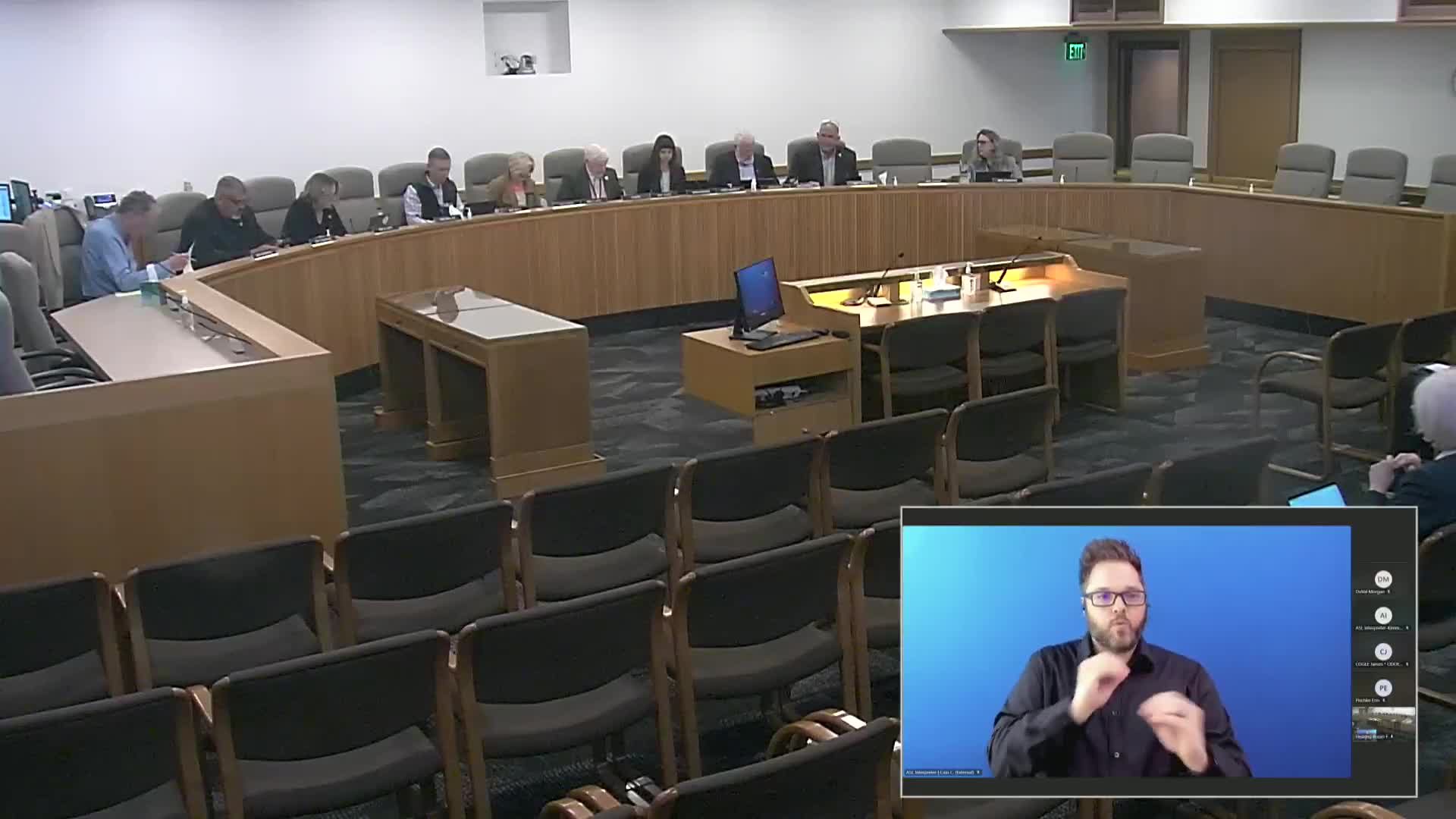Oregon House Committee advances Senate Bill 827 while debating solar rebate concerns
May 13, 2025 | Climate, Energy, and Environment, House of Representatives, Committees, Legislative, Oregon
This article was created by AI summarizing key points discussed. AI makes mistakes, so for full details and context, please refer to the video of the full meeting. Please report any errors so we can fix them. Report an error »

In a lively session at the Oregon Legislature, the House Committee on Climate, Energy, and Environment convened to discuss significant legislative measures impacting the state's environmental policies. The meeting, held on May 13, 2025, featured a mix of support and opposition as lawmakers navigated the complexities of Senate Bill 827 and Senate Bill 1067.
The atmosphere was charged as Vice Chair Gamba moved to advance Senate Bill 827, which aims to enhance solar rebate programs. However, Representative Owens expressed reservations, suggesting that the program was "on life support" due to budget constraints. He noted the limited cost-effectiveness of solar storage compared to other energy solutions, indicating a cautious approach to the bill. Despite his concerns, Owens offered a "courtesy yes" vote, reflecting the collaborative spirit often seen in legislative discussions.
As the roll call proceeded, the motion passed with a majority of "aye" votes, showcasing a commitment to advancing renewable energy initiatives, albeit with underlying apprehensions about funding and effectiveness.
The meeting then shifted focus to Senate Bill 1067, which seeks to empower cities in Marion County to manage solid waste disposal and energy recovery. This proposal drew immediate opposition from representatives of Resource, a community waste solutions facility in Brooks, Oregon. Derek Nelotin and Kevin Hines articulated their concerns about the bill's potential unintended consequences, emphasizing the need for careful consideration of its implications on existing waste management practices.
The committee's discussions highlighted the balancing act lawmakers face in promoting sustainable energy solutions while addressing fiscal realities and community impacts. As the session concluded, Chair Lively announced that further discussions on Senate Bill 1067 would be scheduled, leaving stakeholders and observers eager to see how these pivotal issues will unfold in the coming weeks. The meeting underscored the ongoing dialogue in Oregon about climate action and energy policy, reflecting the state's commitment to navigating the challenges of a changing environment.
The atmosphere was charged as Vice Chair Gamba moved to advance Senate Bill 827, which aims to enhance solar rebate programs. However, Representative Owens expressed reservations, suggesting that the program was "on life support" due to budget constraints. He noted the limited cost-effectiveness of solar storage compared to other energy solutions, indicating a cautious approach to the bill. Despite his concerns, Owens offered a "courtesy yes" vote, reflecting the collaborative spirit often seen in legislative discussions.
As the roll call proceeded, the motion passed with a majority of "aye" votes, showcasing a commitment to advancing renewable energy initiatives, albeit with underlying apprehensions about funding and effectiveness.
The meeting then shifted focus to Senate Bill 1067, which seeks to empower cities in Marion County to manage solid waste disposal and energy recovery. This proposal drew immediate opposition from representatives of Resource, a community waste solutions facility in Brooks, Oregon. Derek Nelotin and Kevin Hines articulated their concerns about the bill's potential unintended consequences, emphasizing the need for careful consideration of its implications on existing waste management practices.
The committee's discussions highlighted the balancing act lawmakers face in promoting sustainable energy solutions while addressing fiscal realities and community impacts. As the session concluded, Chair Lively announced that further discussions on Senate Bill 1067 would be scheduled, leaving stakeholders and observers eager to see how these pivotal issues will unfold in the coming weeks. The meeting underscored the ongoing dialogue in Oregon about climate action and energy policy, reflecting the state's commitment to navigating the challenges of a changing environment.
View full meeting
This article is based on a recent meeting—watch the full video and explore the complete transcript for deeper insights into the discussion.
View full meeting
